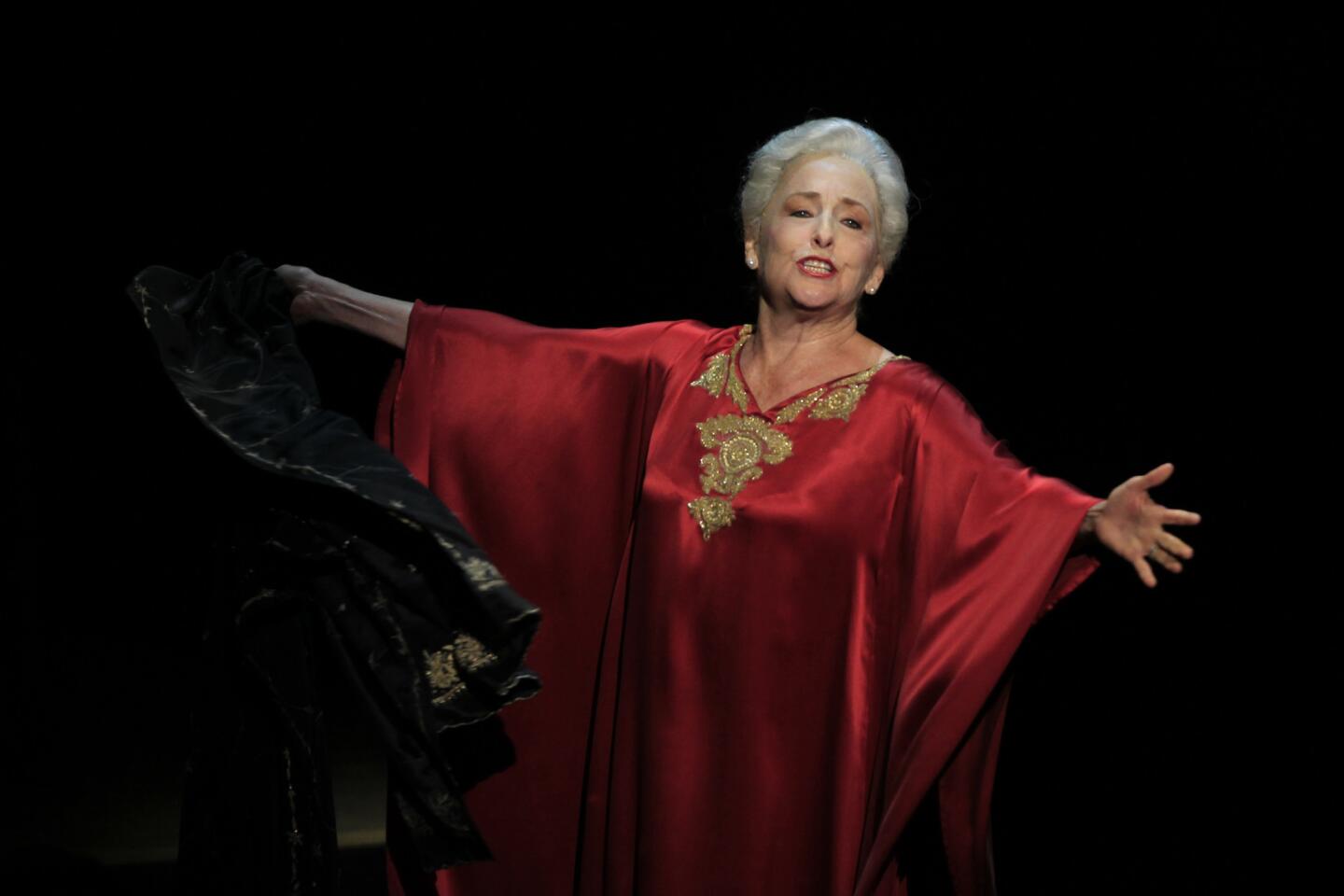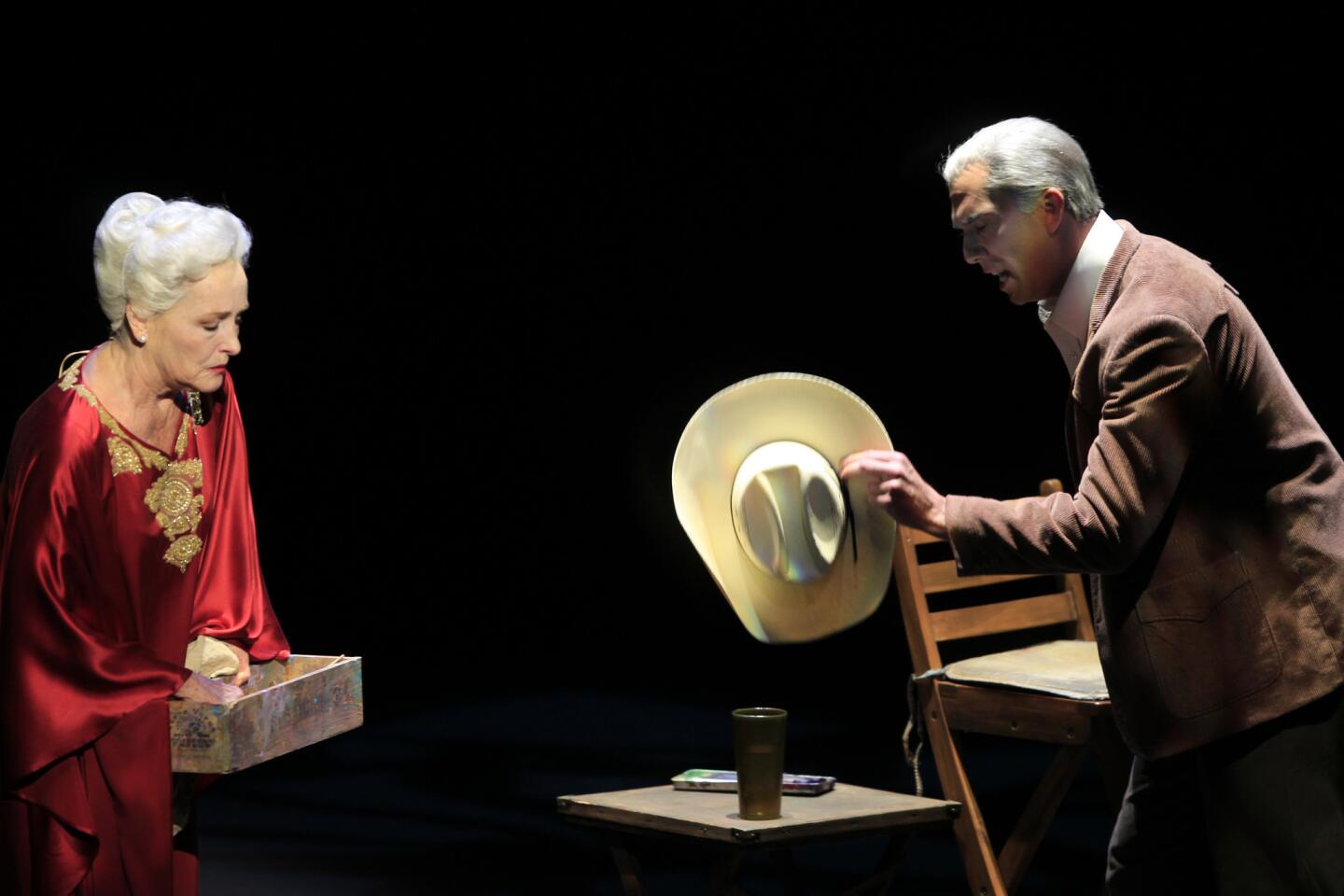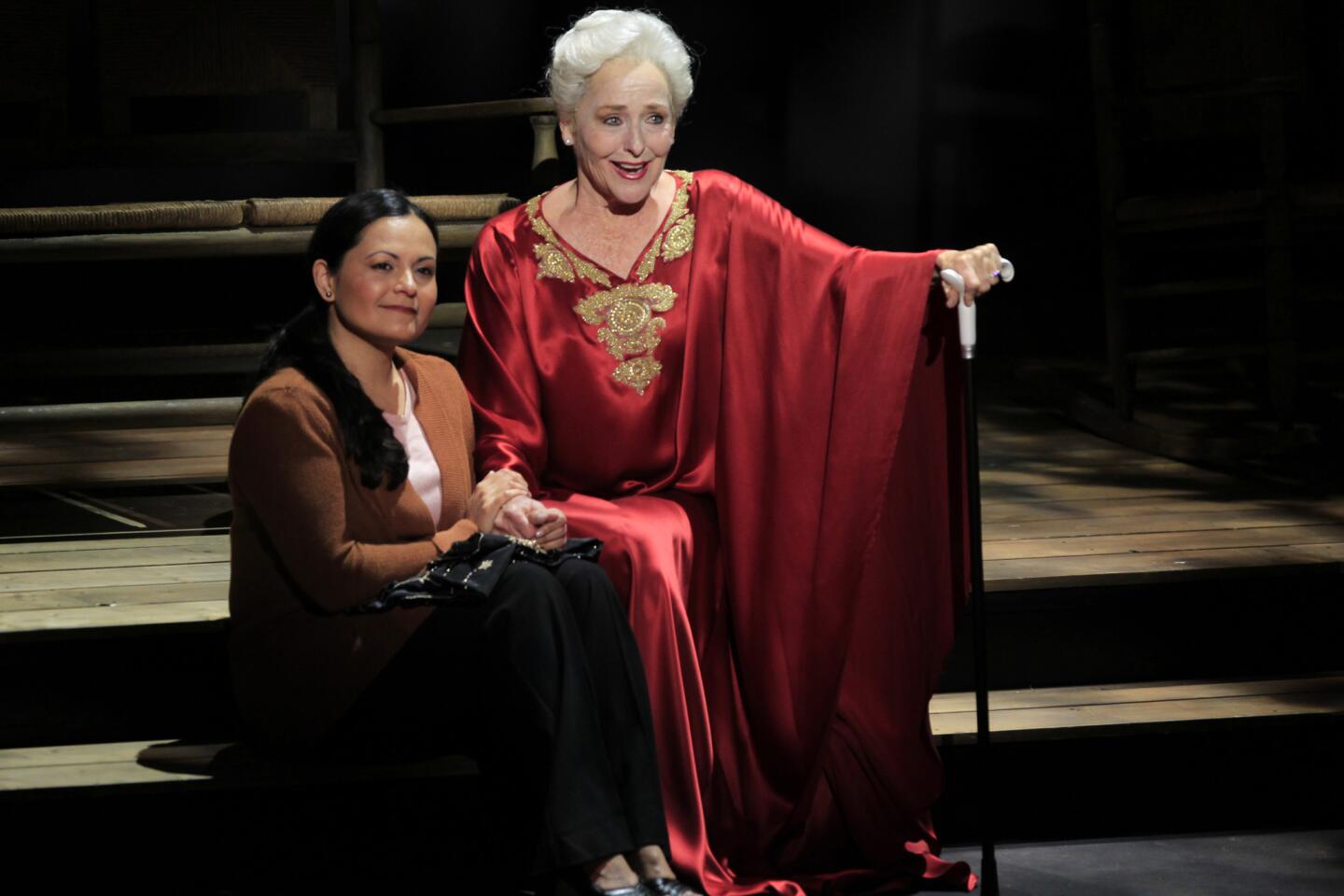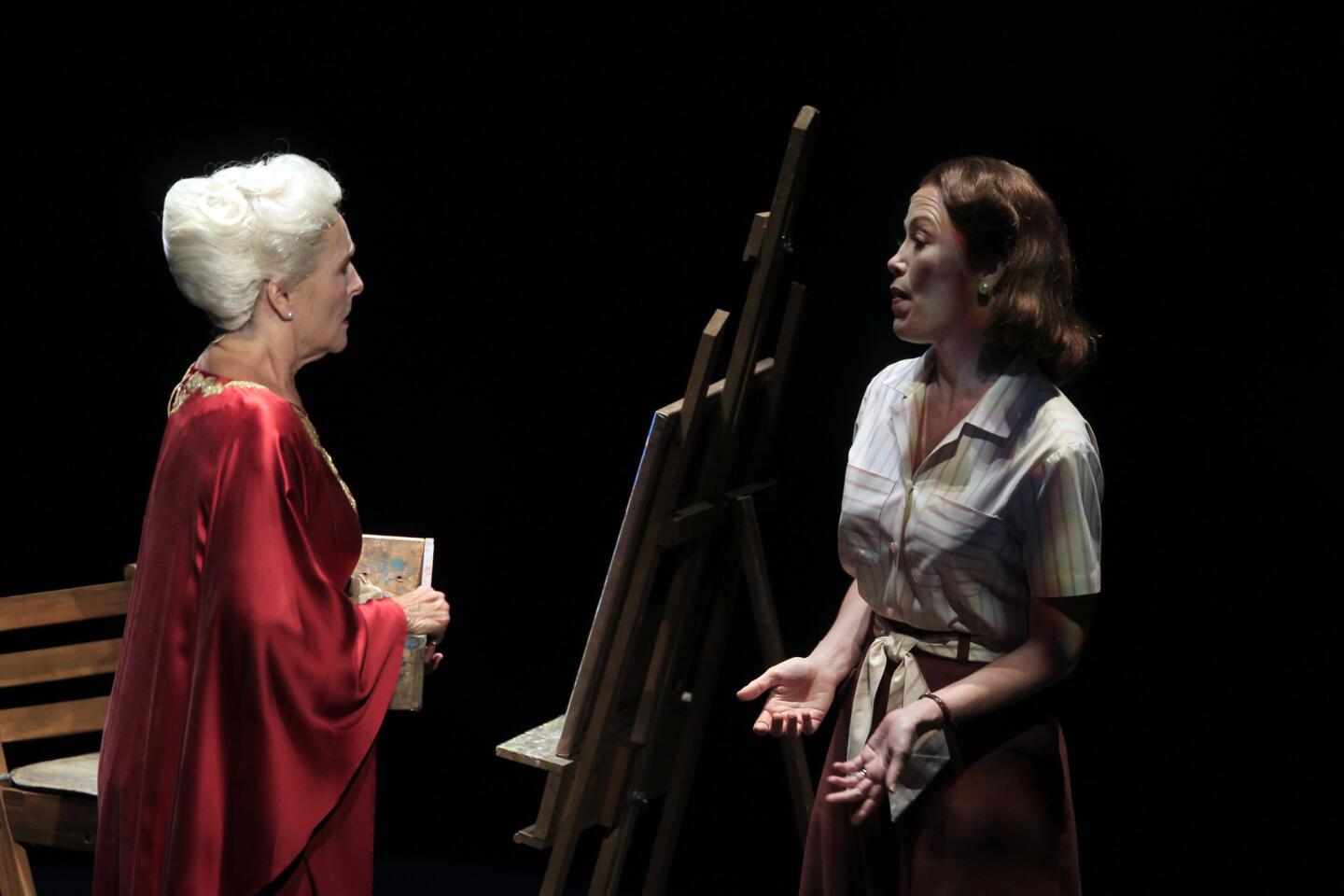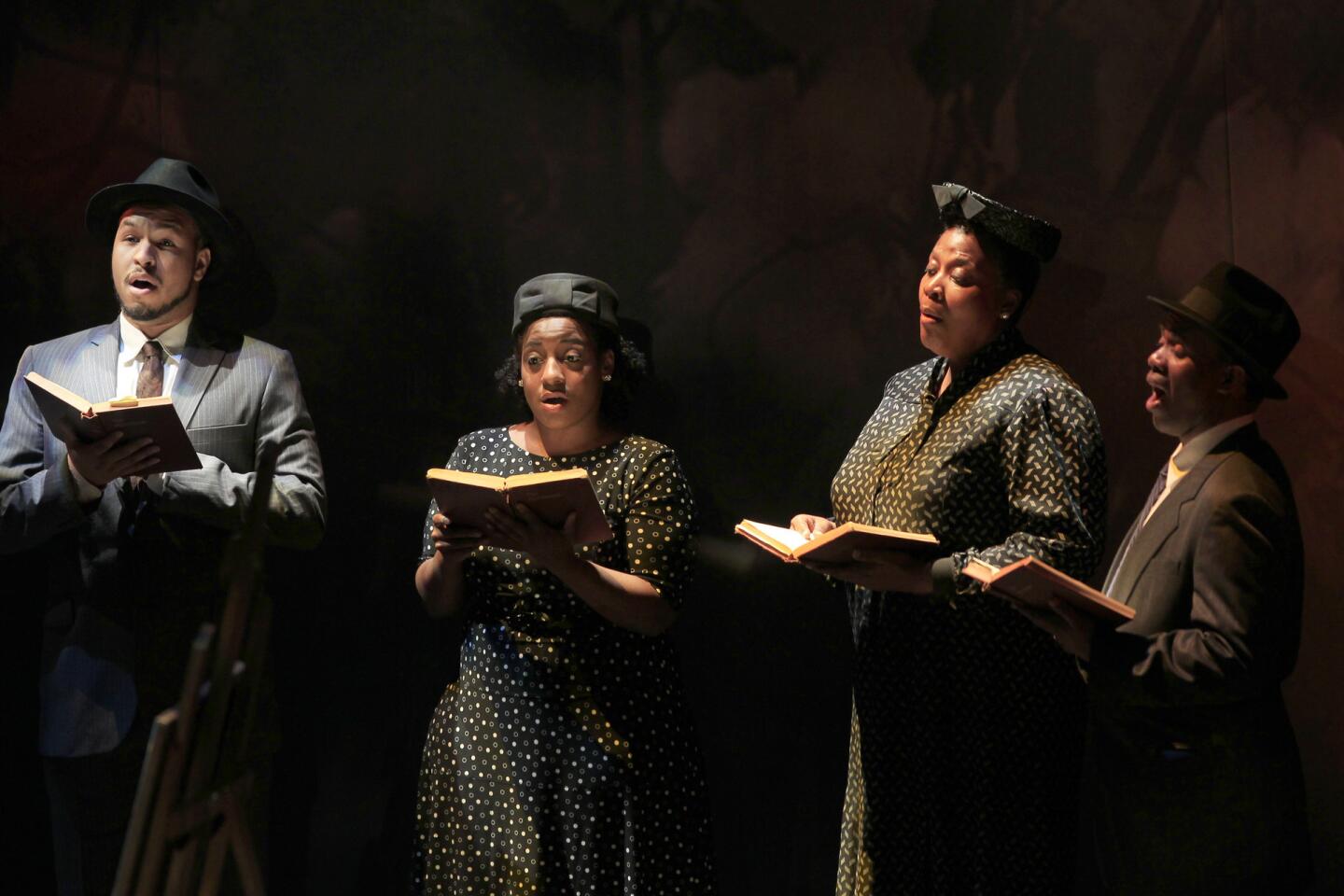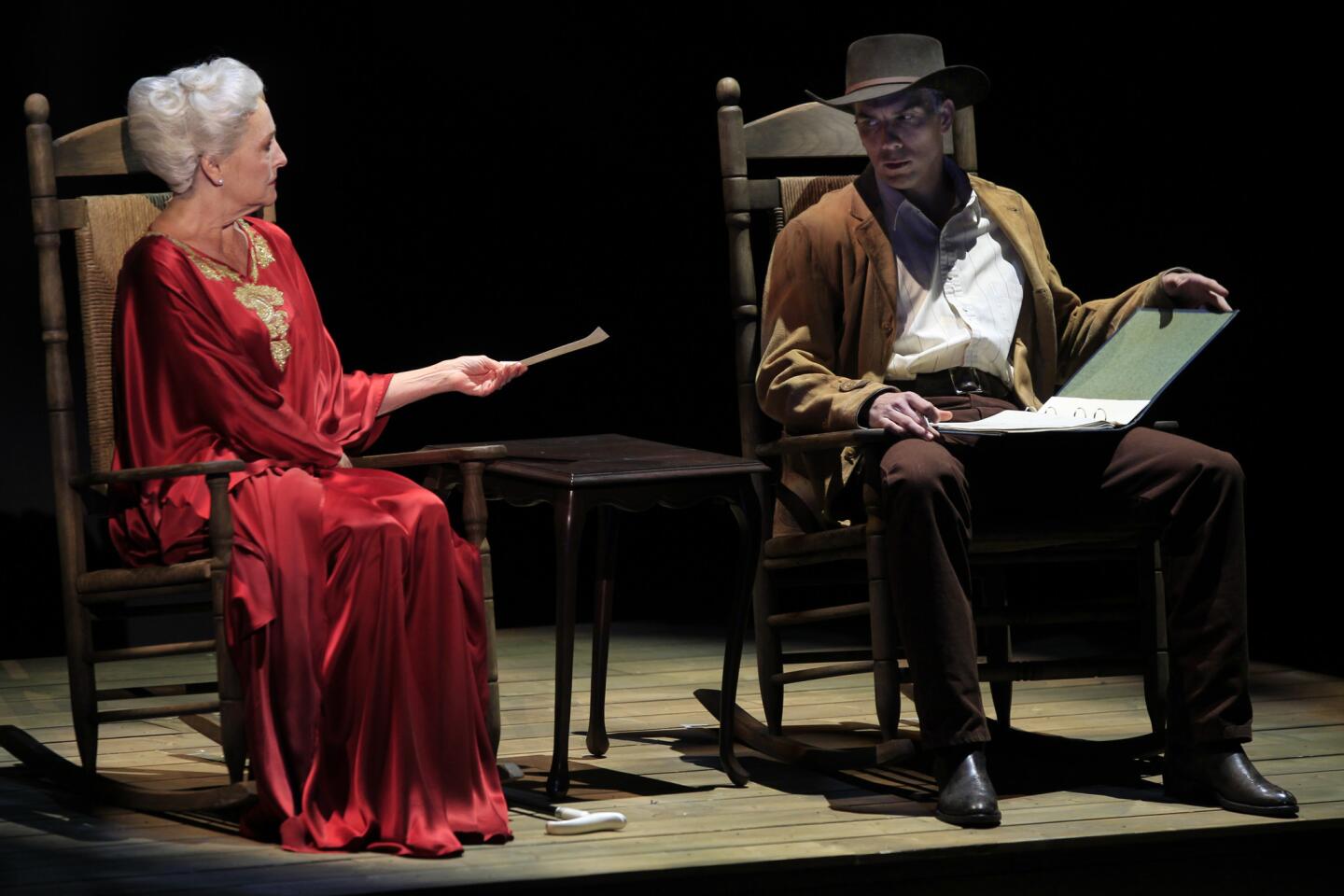Review: Frederica von Stade is regal in ‘A Coffin in Egypt’
- Share via
As an art form with a specialty in portraying madness from the inside, opera can provide vivid evidence of what it is like to lose one’s mind.
But Ricky Ian Gordon’s new opera, “A Coffin in Egypt,” which had its West Coast premiere Wednesday night at the Wallis Annenberg Center for the Performing Arts in Beverly Hills, lets us in on what we can expect to retain longest as our gray matter ages: We get to keep our grievances. “A Coffin in Egypt” is a splendid opera of spite.
A 90-year-old woman looks back. Myrtle’s a Texan in the tiny plains town of Egypt, 60 miles west of Houston. She’s not especially appealing. She is, however, the best of the bunch.
PHOTOS: Best classical concerts of 2013 | Mark Swed
A beauty, Myrtle married a wealthy landowner. He proved a rotter, a philanderer who, among other things, shot and killed the father of his mistress. Myrtle’s husband, Hunter, was 68 at the time, the girl, 17. He got away with it.
It is now 1970. Hunter is dead. Myrtle’s two daughters are dead. A brother-in-law is dead, shot by his son. Myrtle’s nephew was really after his mother, and she’s dead now too. The list goes on.
Gordon wrote “Coffin in Egypt,” which has a libretto by Leonard Foglia based on a play by Horton Foote, for Frederica von Stade, the celebrated mezzo-soprano who gave her farewell performance at Houston Grand Opera three years ago, when she was 65.
Her retirement didn’t last. Houston Grand Opera commissioned “Coffin in Egypt” and premiered it last month. Other than a four-member gospel chorus, which periodically appears on stage to raise spirits, Von Stade’s is the only singing role. There are four small speaking roles and a silent one for Myrtle’s caretaker.
This makes “Coffin in Egypt” practically one long mad scene for Flicka, as Von Stade is familiarly known to her legions of opera fans. She begins reminiscing at her easel while she paints flowers — the set by Riccardo Hernández (who also designed the costumes) is an undulating backdrop with attractive floral projections.
PHOTOS: Faces to watch 2014 | Classical music
She was happiest apart from Hunter, a cold fish who allowed her freedom. She learned to paint in Paris and found she was fun. She was wooed by a sheik in Algiers. A Broadway producer wanted to make her a star. Back in Texas, she danced with a captain.
Those were the missed opportunities of a lifetime otherwise dominated by Hunter’s humiliations. Or were they? Myrtle was aloof, never fully embraced life. That may have been the secret of her longevity. But regret has begun eating away at her. Or is it age speaking? Did these things really happen? Are regrets even worth the effort, when there is no certainty other than a coming coffin in Egypt?
Von Stade is a compelling stage presence. She doesn’t fall apart before our eyes. She is regal from beginning to end in her fight with remorse. Her humiliations don’t make her particularly sensitive to those of others. But her strength of character, her class, remains imposing as the flesh, spirit and mind all begin to falter.
Yes, of course, Von Stade can still sing. That middle and lower register were always her glory, and they still are. The opera is for chamber orchestra of only nine players, conducted by Kathleen Kelly, so Von Stade has no need to force.
Gordon can write on a grand scale — his epic “Grapes of Wrath” is his most impressive work. His music has an elegant ease to it in a style that has elements of Richard Strauss and Copland and Sondheim. Next for him is an opera about Gertrude Stein and Alice B. Toklas that Opera Theatre of St. Louis will premiere in June.
PHOTOS: LA Opera through the years
Gordon carefully controls Myrtle’s dramatic peaks. Her anger is effusive while her anguish is subdued. The lyrical moments are reserved for her travels, her paints and her love of her landscape. Often the instrumental ensemble picks up one of her phrases and lets it linger for while, and it is that lingering that helps give Myrtle her meaning. The landscape, the prairie, under which she will soon be buried, is beautiful. That is what remains.
Besides librettist, Foglia is also the director, and his elegantly straightforward production trusts the music and the charisma of his star. David Matranga (Hunter), Carolyn Johnson (Myrtle’s sister-in-law and a clerk), Adam Noble (Captain Lawson) and Cecilia Duarte (Myrtle’s companion) make brief appearances, their spoken parts useful to set off the sung inner workings of Myrtle’s mind.
The gospel chorus is a peculiarity, especially given Myrtle’s racial slurs. But it also helps show the complex nature of her inability to shield herself from her environment.
And speaking of that environment, this is the first opera in the Wallis, which opened this season. Here is an ideal space for chamber opera, with its 499 seats and wide, well-equipped stage.
But “Coffin in Egypt” is not the best test for the venue. The producers decided in Houston to amplify, primarily to make the small chorus more prominent but also to help with the spoken voices. That, though, gives a metallic tint to everything, including Von Stade’s upper range.
Then, again, Beverly Hills does go in for loud, shiny metals. Be prepared for sticker shock at the Wallis, where tickets for a short, essentially one-woman chamber opera are $99 to $199.
-----------------------------
‘A Coffin in Egypt’
Where: Wallis Annenberg Center for the Performing Arts, Beverly Hills
When: 8 p.m. Friday and 2 p.m. Sunday
Tickets: $79 to $199
Contact: (310) 746-4000 or https://www.thewallis.org
Running time: 78 minutes
More to Read
The biggest entertainment stories
Get our big stories about Hollywood, film, television, music, arts, culture and more right in your inbox as soon as they publish.
You may occasionally receive promotional content from the Los Angeles Times.
